2012 was quite a year.

We spent February in one of my favourite places—the island of Kauai. Four weeks of family visits and homemade ahi poke, countless waterfalls and all-day double rainbows. I had started pitching to agents and it was from Kauai that I began a conversation, via email, with Drea Cohane of The Rights Factory. When Drea offered to represent my novel I didn’t hesitate. By mid-summer we had an offer for world rights in English from my soon-to-be editor, Adrienne Kerr, of Penguin Canada. As the year comes to a close, we’ve been working on edits, a cover and new title (more on that later) and we look forward to a summer 2013 publication date.
Thanks to contributions from family and friends we were able to complete the reconstruction of a new school and commence a bursary for 70 girls in Lugbu Chiefdom, Sierra Leone. These projects and some tweaking of my manuscript were the reasons for my return to Sumbuya this September.
The school and bursary program has been a couple years in the making. During my first visit to Sumbuya, I visited the mission school. Ninety-five children and two teachers to a classroom. Teachers walking around with cane switches—‘better to keep order’ they said. Very Charles Dickens. The kids with ‘no potential’ sat at the back like so many little statues collecting dust. Girls whose parents can’t afford school fees don’t attend at all.
Just up the hill was the shell of a school—roofless, broken walls. For ten years it stood abandoned. Some said it was a storm. Some said the war. Like so much in Sierra Leone the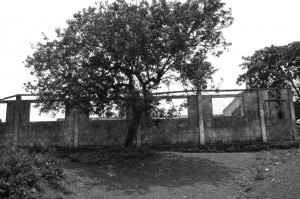 ruin seemed to represent the good idea of an earlier time. Asking why the Catholic Mission hadn’t provided funds to rebuild the school was like asking why plagues happen: God’s will.
ruin seemed to represent the good idea of an earlier time. Asking why the Catholic Mission hadn’t provided funds to rebuild the school was like asking why plagues happen: God’s will.
We had some meetings—if we rebuilt the school the average class size could be reduced from 90+ to 45 students. And so we did. I promised a percentage of the costs with funds raised through friends and family. The
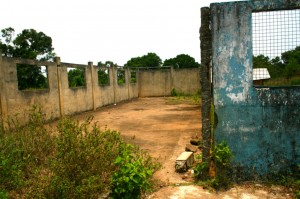
local World Vision promised a percentage, as did the chiefs. The church (it was a Catholic mission school after all) didn’t promise anything. As to school fees, we established a ‘bursary committee’ to chose motivated girls and boys—if they attended regularly we would pay their way through high school. Oh, and the headmasters added one criteria for girls—they were not to get pregnant…
I had a commitment from my friend David Stephens to oversee both the building project and the bursary project. The school was completed the week before my arrival.
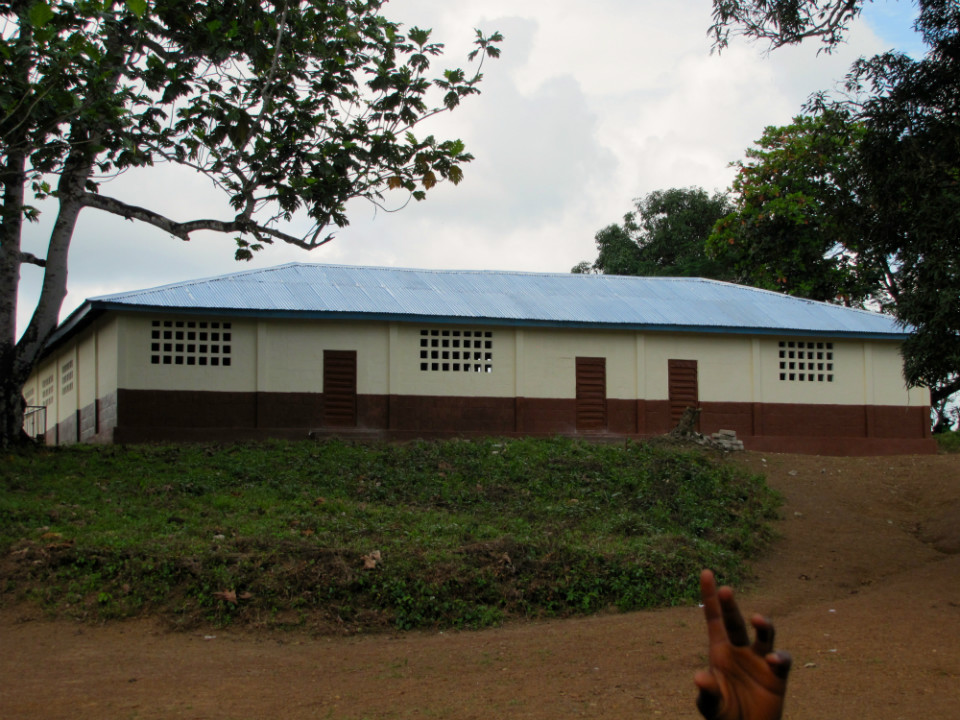
Within an hour of my arrival some of the local teachers and elders took me to see the new school. Three classrooms and a large hall that can be used for community events and extra classroom space. The official opening was a day later. Elders. Chiefs. Big men. Big women. Two hours of speeches. Platters of rice and spicy goat soup and chicken cassava. Many thanks. One of the chiefs was the last to speak—this could not have been possible without the chiefs, he said. Didn’t the chiefs give permission for Mr. Michael to come to the town? Didn’t the paramount chief write the ‘official’ letter to the mission asking for the project to take place? He neglected to say that the chiefs had promised 7% of the costs. They didn’t give a penny. Sierra Leone.
That night we had a dance in the hall to celebrate. Earlier in the day the girls we look after gave me a dancing lesson—sort of a Mende shuffle, nothing like the sensuous Bundu dances they’d performed earlier.
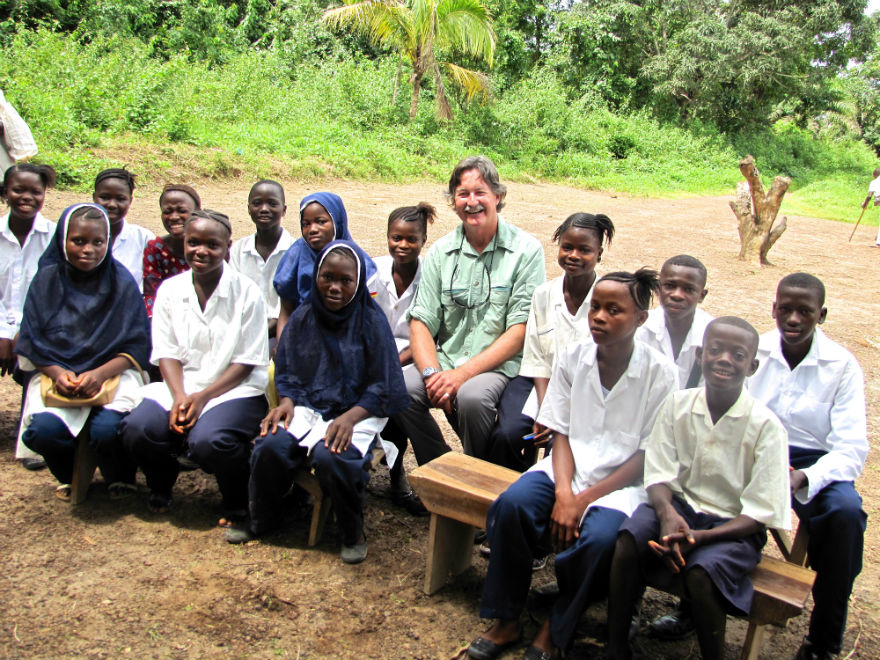
The girls dressed in their best and off we went. A generator provided the power for the big speakers. The only light was from the ambient glow of cooking fires in the courtyard and a couple of strands of Christmas lights around the stage. It was going well. Twelve year old Mamie said, “Mr. Michael you are a good dancer.” Just what I needed to hear—until the headmaster called a stop to the dance. “Clear the dance floor” he boomed into a megaphone. It all felt very ominous. Everyone started looking at me—my worst fears were confirmed: he wanted me to ‘open’ the dance.
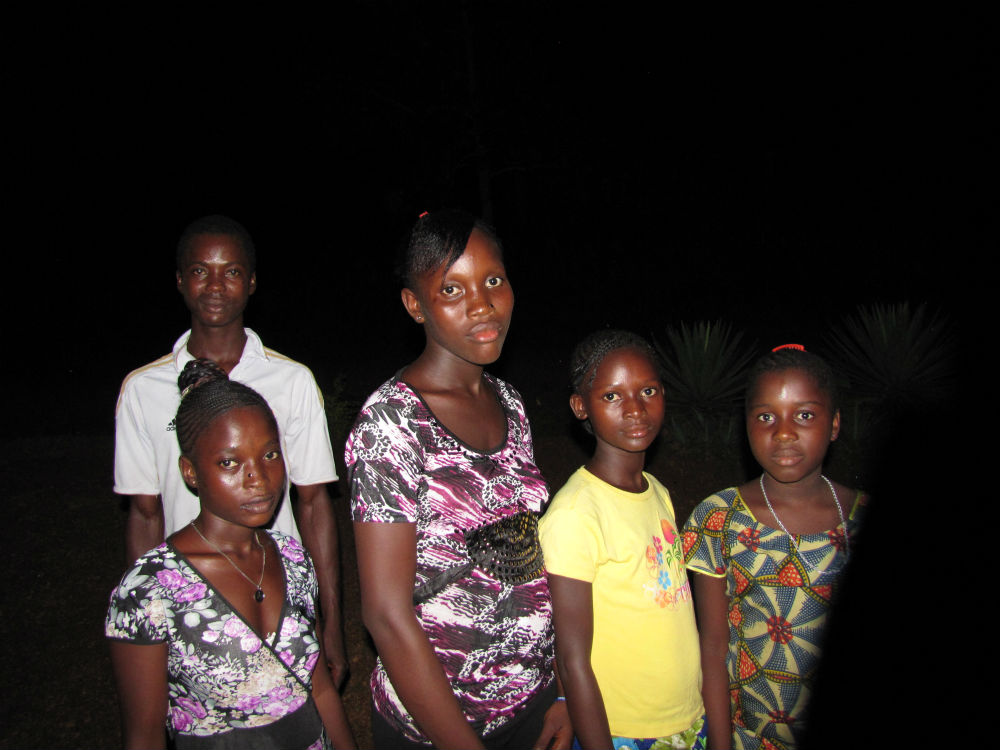
“He wants me to dance alone?” I asked Regina, the only female teacher.
“Mr. Michael, it means you must dance by yourself in the middle to mark the official opening of the school….”
Something I should disclose right now—I enjoy traveling in places that could make a French Foreign Legionnaire tremble—but don’t ask me to be the first up on a dance floor. The best time to dance at a wedding is when the bride has had too much to drink and the guests can’t keep their eyes off her. I have poor rhythm, even by white-male standards. And this is Africa! People here are born dancing.
The headmaster signaled the dj with a flourish of the megaphone—let the music begin! I looked skeptically at Regina—“It is okay. I will join you,” she said with a reassuring smile. In my experience there is nothing a woman hates more than the look of terror in a middle-aged males eyes.
And so it is that in 2013 I danced for an African village. As my feet shuffled and I executed a few flawless twirls the girls again joined in, literally dancing circles around me. It was the sort of out-of-body experience that leads one to wonder what one’s family would think if they saw me at that moment. Collectively, they would have closed their eyes, shaken their heads and said: “Oh…My…Gawddd….”
Leave a Comment